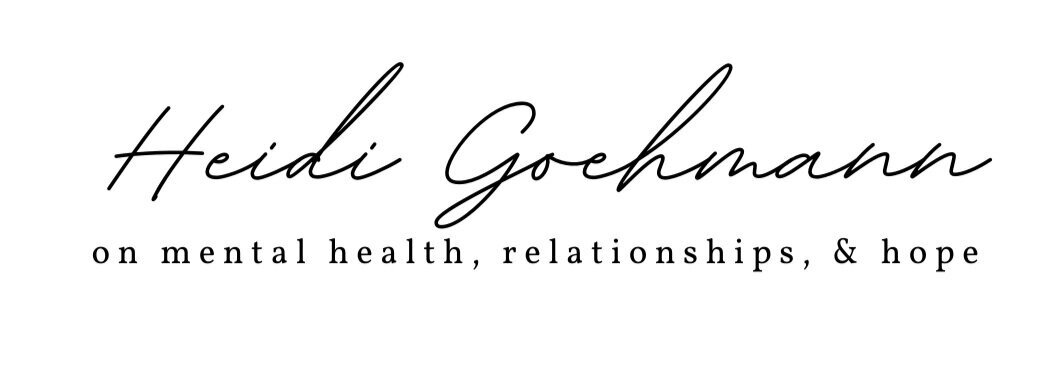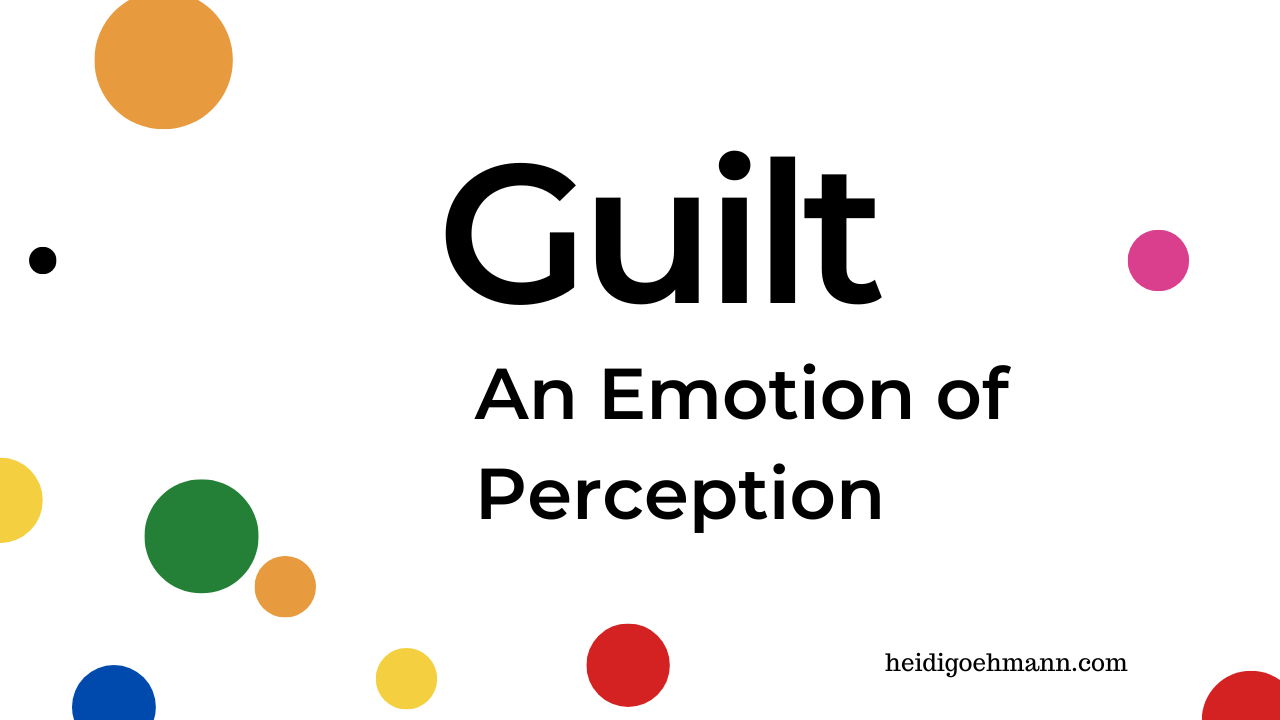Guilt: An Emotion of Perception
There are many reason to feel guilty in life.
A few I hear often in the therapy room include familial obligations, letting someone down, saying the wrong thing, saying something that doesn’t land the way we intended, eating too much food, setting boundaries, and having human needs, including our mental health.
We are people who have feelings about our feelings (meta-emotion) and thoughts about our thoughts (meta-cognition). Meta-emotion and cognition are related to wonderful and important (while sometimes pesky) executive functioning skills which allow us to evaluate the world and our contexts, including ourselves. Yet, our evaluations, set to keep us safe, can quickly go awry. We judge and feel judged. We feel anxious about our anxiety. We are afraid of our fears. We think too deeply and too harshly about our thoughts and feelings, which may be momentary, confusing, and mostly come unbidden.
Part of the work of being human is the work of aligning ourselves with our values over and over again. We have a thought and determine whether it is believable, reasonable, or helpful given the situation in front of us. We have a feeling and consider where it came from, what it is related to, and whether it needs more attention.
Guilt can be a pinch or a strong emotion begging for attention within us. First, it helps to recognize its strength. We all have a load of emotions each day and not everything can be given attention. It is easy to tax our executive functioning by expecting it to process every miniscule detail of the day and our inner worlds. One way we address executive functioning challenges like organizing ourselves, impulse control, planning, and initiating is by letting some things go. We change our environment or ask for more time for homework. We get honest about deadlines, and we begin to form a relationship with the parts of our brains that want what they want, when they want it so that we can get to know it, clarify what is safe and not safe, and generally guide and teach it in love.
The interesting thing about guilt is that it is an emotion related to morality. When we feel guilty, we are perceiving a harm, real or imagined, or somewhere in between. Guilt exists between – between you and me, between me and my Dad, between humans and God, between a leader and their followers, between…
Guilt is a perceived relational reality, more than it is an emotion.
We certainly feel it, but when it lasts, when it continues and hangs out like a bad houseguest, then, it is a belief. Our safety brain holds fast to the guilt, even once confessed, laid down, or apologized for tenfold. Our Nervous Systems take the emotion of guilt, the feeling of guilt and hold it in tension somewhere inside our bodies as a reminder that connection can be lost. We moralize ourselves essentially. And the trouble with stuck guilt is that it is an emotion gatherer. Guilt has a surprising activation in our Sympathetic Nervous System, meaning it sets off alarm bells, and then looks around for the fire or at least the slippery banana peel. Our sympathetic nervous systems can begin to pick up more and more negative perspective and uncomfortable emotion within our body in order to prove the alarm wasn’t a fake out. When we hold guilt, we are set internally to note that which is challenging or problematic rather than what is good and joyful, much more easily than when we have laid our burden down.
Given that it is an emotion of morality, guilt, like wonder is an innately spiritual emotion. It pokes at our deepest places perhaps with an unfortunately negative leaning. It asks, “Am I worthy? Am I loved? Does anyone care about me? Is anyone watching over me? Can any of all this brokenness be fixed?”
Guilt needs to hear a basic truth once again:
Everything is redeemable.
Nothing is unforgivable.
You are human and you are learning.
If your mind is stuck on guilt, it likely is because it needs you to release it a little bit within yourself in order for your body and mind to believe you are trustworthy… to you. Our bodies desperately want to know of us: Will you keep me safe? Will you keep us connected? Will you stay true to our values? Will you… let go when you muck it up?
Guilt is one of those emotions I hear from people often, popping up like a spiritual, and deeply personal whack-a-mole. We try to let it go and a voice inside of us says, “Why you dirty rat.”
Again, basic truths serve us well here:
Everything is redeemable.
Nothing is unforgivable.
You are human. You are learning.
Here is how I recommend beginning to respond to yourself, to begin at the “between”, to create a relationship with your own psyche to help your inner world know that you are listening, that you are leaning in, that you are learning each day, and also that you are tired, and you are trying, and you hurt. The practice of tending to the between of guilt – between me and my friend, between God and humankind, between me and anyone – starts with between me, myself, and I. Tending to the deep place that is hurt by our own guilt, the guilt of others, or by this mad, mad world, help to clear the air just a bit, to release just enough that we can believe in also letting go – whether to do the thing that was in our values all along or to set the boundary, to end the inner torment and to let ourselves feel forgiveness.
It’s a tiny trick to let your body and mind identify that we are all on each other’s side here.
Most days, I love being Lutheran because we specialize in saying, “Yep, I’m guilty, but I don’t have to live there.” And yet, because we need the emotional information of guilt to remind us to be good humans, not living in guilt is easier said than done.
Interact with that emotion, friends. Give the part of yourself that holds the guilt a little love, a little affection, and a little parenting. Remind it that being human is pretty hard, or really hard some days, and begin to lay down, let go, and let God tend to the wounds of a life trying your best each and every day.
Everything is redeemable.
Nothing is unforgivable.
You are human. You are learning.
Primary references:
Stewart, C. A., Mitchell, D. G. V., MacDonald, P. A., Pasternak, S. H., Tremblay, P. F., & Finger, E. (2023a). The psychophysiology of guilt in healthy adults. Cognitive, Affective, & Behavioral Neuroscience, 23(4), 1192–1209. https://doi.org/10.3758/s13415-023-01079-3
The Bible ;)

